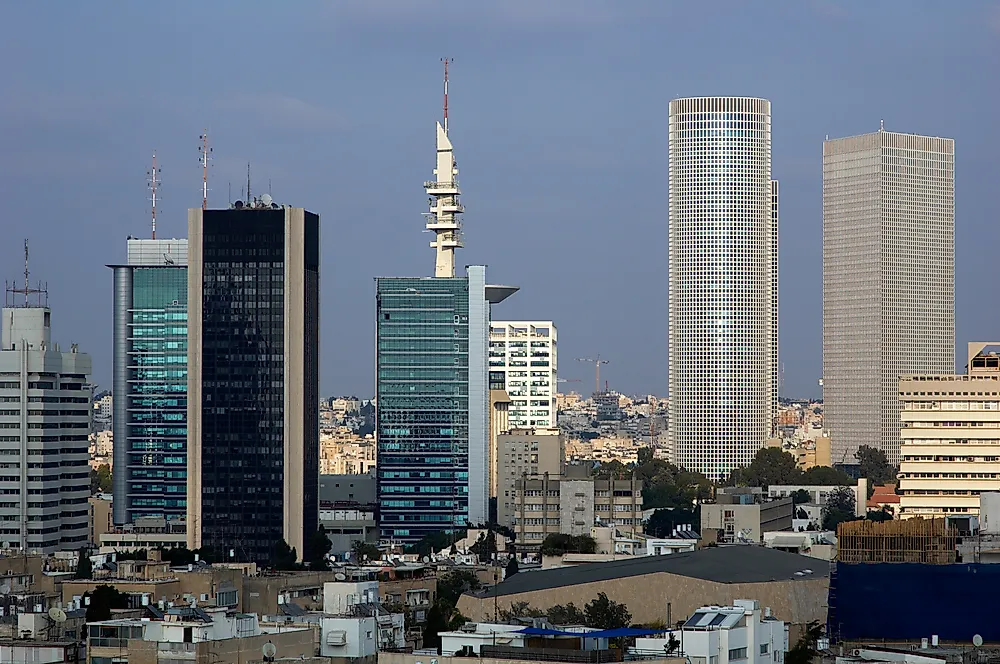The Biggest Industries In Israel

Israel has one of the most advanced economies in the world. Israel’s economy is characterized by high standards of living, high technology, and modern infrastructure. Below are the biggest industries in Israel that are responsible for its advanced economy.
High-technology
Israel’s technology sector is growing faster than any other industry in the country. Science and technology are the country’s most highly developed and industrialized sector, making it a significant part of the economy. According to Ministry of Foreign Affairs, high-tech industries are growing at an average of 8% per years and about 5% of the country’s GDP is spent on these industries, the highest among all the OECD countries. In 2016, about 70% of the country’s industrial products were derived from high-tech industries.
Manufacturing
While the high-tech industry often gets international recognition for its contribution to Israel’s economy and the number of start-ups, the manufacturing industry is also robust and contributes greatly to the country’s economy. The country has a well-developed manufacturing industry with large production capacity. Israel has a high-tech and well-developed chemical industry mainly located in the Ramat Hovav and near the Dead Sea.
Diamond Industry
Israeli diamond industry is an important part of the manufacturing sector. The country is one of the leading centers for diamond cutting and polishing in the world, with the industry accounting for 23.2% of all export products. Cut diamonds were Israel’s biggest export product in 2016 and accounted for 12% of the world’s production. The US is the largest market for the Israeli diamond, accounting for 36% followed by Hong Kong at 28% and Belgium at 8%.
Agriculture
Agriculture is one of the highly developed industries in Israel and a major source of export products. Israel is a leader in agricultural technologies and one of the major exporters of fresh produce. The fact that most of the country is desert and unconducive for agriculture has not hindered the country from carrying out the activity on a large scale. Agriculture accounts for about 2.5% of the total GDP and 3.6% of the export. Also, Israel was able to produce 95% of its food requirement in 2008 despite only 3.7% of the total labor force working on the farm.
Tourism
The tourism industry is one of the major sources of foreign revenues for Israel, attracting over 3 million visitors in 2017. The growth of this industry is not showing any sign of slowing down. The tourism industry employs about 200,000 people or about 6% of the workforce. Israel has numerous historical and religious sites, beaches, and museums that have played a key role in the growth of the tourism industry.
Transportation
Israel’s developed transportation system plays a critical role in its economic success. The country has invested in this sector over the years and continues to do so with the aim of increasing its capacity to handle the growing population. There are three deep-water ports in Israel, one in the Red Sea and two in the Mediterranean Sea. The ports provide access to the Atlantic and the Indian Ocean. Air transport has facilitated the export of high-value goods from all the other sectors of the economy and also aided in the growth of the high-tech sector. The highly developed highway system enables people to move freely and efficiently.











